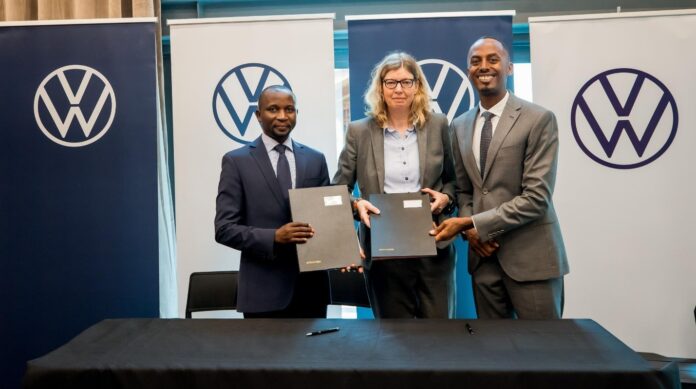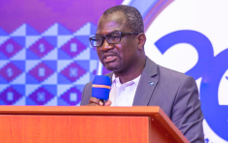
- Rwanda and Volkswagen Group to establish a modern farm with electric tractors
- The GenFarm Project to make positive sustainable socio-economic and environmental impact on the community
- Successful trials with the first prototype e-tractor model concluded
Volkswagen has signed a Memorandum of Understanding (MoU) with the government of Rwanda to establish a modern farm with electric tractors.
The MoU was signed by Minister of Agriculture and Animal Resources, Dr. Ildephonse Musafiri Serge Kamuhinda, CEO of Volkswagen Mobility Solutions Rwanda and Martina Biene, Chairperson and Managing Director of Volkswagen South Africa in the presence of Imelda Labbé, member of the Brand Board of Management of Volkswagen for Marketing, Sales and After Sales.
As part of the MoU, the Government of Rwanda has agreed to provide land in Gashora (Bugesera District) for the project, as well as to assist with permitting and licensing requirements of the project.
The objective of the GenFarm Project in Rwanda is to make positive sustainable socio-economic and environmental impact on the community by creating a carbon neutral business ecosystem.
The GenFarm Project is a holistic ecosystem of e-powered mechanized farming service for rural areas in Africa that is reliable, sustainable and environmentally friendly. The excess energy used to charge the electric tractors will provide power for post-harvest handling and storage.
The pilot project in Rwanda is steered by Volkswagen Group Innovation in partnership with Volkswagen Mobility Solutions Rwanda.
“The signing of the MoU with the Government of Rwanda marks yet another milestone for Volkswagen’s sustainable mobility lighthouse projects in Rwanda. Our long-term plan is to build up demand for electric batteries in Africa by introducing locally relevant business solutions. The future of mobility in Africa will also be determined by the storage and distribution of green energy. With the GenFarm, we hope to address the mobility needs of customers with high transformational impact on the African economy,” said Martina Biene.









